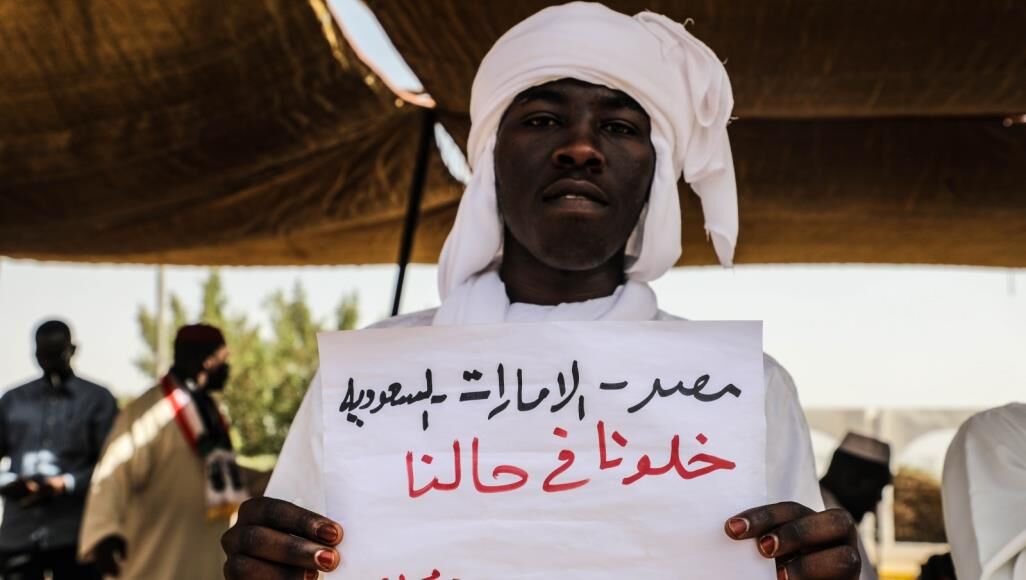The developments in Sudan which began in a platform of internal dissatisfaction with the former regime and was on the brink of a new beginning in the political landscape of the East African state thanks to the people’s resilience assumed a colour different from the growing expectations of the people due to the intervention of the military. This ultimately led to the presence of self-proclaimed currents and foreign interventions.
With the ouster of the former regime and the takeover of the military, the people’s demands seem to have been confiscated and due to the lack of internal legitimacy of the coup leaders, the developments occurred in line with the interests of their foreign supporters. Although based on the structure of the African Union, any coup regime is recognized to be illegitimate and should hand over power to civilians in a short period of time, but the lack of an influential leader in Sudan and the absence of hegemony of popular currents and the gap between them — despite the resistance put up by the people including the youth — the ground has been prepared for the continuation of the sovereignty of the coup leaders.
Foreign countries such as the United Arab Emirates, Saudi Arabia and Egypt view the presence of the military in Sudan in their own interests and continue to pursue their conservative policies and counter the Islamic movements, in particular, the Muslim Brotherhood in line with their strategic objectives. Riyadh and Abu Dhabi also tried to provide financial assistance to the Military Council in order to stabilize their position for the survival of their sovereignty over the country. The Transitional Military Council, in the same vein, tried to secure more support for its movements in Sudan by dispatching official delegates for the sake of coordination with their allies.
The $3 billion aid extended by these states to the Sudan Military Council is analyzed in this framework. Concurrent with the support extended to the Sudanese military by Egypt, Saudi Arabia and the United Arab Emirates, news reports spoke of a possible decision by the Transitional Military Council to cancel an agreement on construction of a Turkish military base in Sudan which indicates the adoption of a special policy line by the Transitional Council. The measure has been taken in the context of creating tension in Sudan’s relations with Turkey and conflicts with the Justice and Development Party’s (AKP) policies, similar to Egypt and Libya.
The scheme of Mohammed bin Salman and Mohammed bin Zayed, the crown princes of Saudi Arabia and the UAE for Africa which was stepped up after the popular uprisings in these countries, aimed to penetrate the Arab Maghreb and North Africa region, which began with coup attempts to suppress the popular protests in Algeria and Sudan. The trend has continued with attempts to stabilize the influence of these countries in the Somalia, Djibouti and Eritrea military bases in the Horn of Africa. Nevertheless, it appears that Riyadh and Abu Dhabi see the current situation in Sudan and other African countries an opportunity to boost their strategic interests in North Africa.
They believe that in this way they can keep Iran away from the Red Sea coast, while Sudan will keep its few thousand military forces in Yemen. Saudi Arabia and the United Arab Emirates are also seeking to support agricultural investment valued at tens of billions of dollars in Sudanese land, which is being used to grow wheat and legumes for domestic consumption. These countries, along with the Egyptian regime, are struggling through their actions in Africa to counter what they describe as “political Islam” as they regard Turkey and Qatar as leaders of this approach.
As mentioned, one of the issues that seem to aggravate the escalation of the internal crisis in Sudan is foreign intervention. They are trying to orchestrate the state of affairs in Sudan in line with their projected goals through news-jacking. This demands the parties involved in Sudan to be vigilant and prefer national interests to party interests and act in compliance with the main demands of the people which is manifested in a peaceful transfer of power to civilians. If this does not happen, Sudan will face a great danger that may even lead the country to civil war.
Based on the pressure from the African Union and the setting and extension of the deadline for the transfer of power to civilians in Sudan, recently an agreement on transitional period was signed. According to agreements reached between these groups and the Military Council, the sovereign council will be in control of the state affairs for three years and three months. Nevertheless, it should be noted that groups from the military and civilians have voiced opposition to the deal. It is hoped that by action and taking care of this agreement by the different groups, they will prevent foreign intervention and civil war.
It should be noted that Sudan is located at the heart of the strategic depth of the Arab states of the Persian Gulf and the Red Sea. The country is important to the Arabs for several reasons. First, Sudan is the gateway to the Persian Gulf Arab states towards Africa; Moreover, the Red Sea and Bab Al-Mandeb have created a very special strategic location for the country. Thus, Sudan is a strategic bridge between the Persian Gulf states and Africa.
Additionally, Sudan also enjoys rich natural resources, accounting for nearly 40% of the Arab world’s agricultural lands. Moreover, the neighbourhood with eight major African countries and its vicinity to the Red Sea and the Middle East, plus the presence of significant mineral and agricultural resources have made the global powers attach particular importance to the African state.










0 Comments